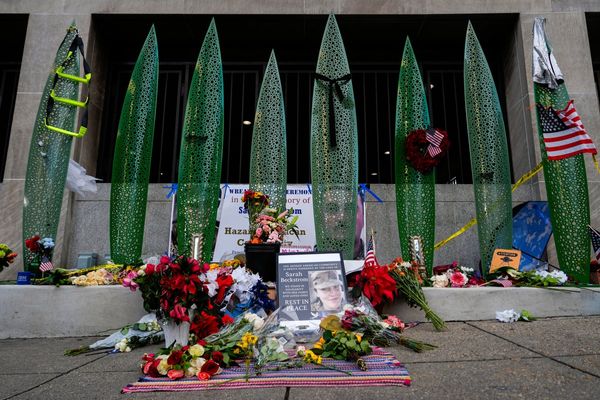
Based on a quick glance at headlines from the rightwing press, you might be led to believe that the world as we know it is coming to an end. But this apocalypse is not related to the climate emergency, or geopolitics, or a new pandemic. No, it will come, apparently, as a result of Labour’s plan to add VAT to private school fees.
Intent on corralling their loyal readerships into the same frothing hysteria, these outlets blare, like foghorns, variations on a theme: VAT on private school fees is an iceberg to the Titanic that is that cornerstone of British life, the public school. They scoff at the £1.5bn the policy would raise, a sum that could be used to recruit 6,500 new secondary school teachers at a time when only half of the required numbers in England are training to enter the profession. Since the public is too thick to see what is truly at stake here and the Tories are all but mincemeat, it’s left to these parts of the press to resolutely speak truth to power.
“Labour’s VAT raid on private schools poses ‘existential threat’, says Gordonstoun head”, scolded the Telegraph. If that doesn’t stir the correct feelings of outrage in you, dear reader, perhaps a headline like “Labour’s VAT on private school fees to ‘leave legacy similar to closure of mines’” will rouse your sense of injustice?
In case you missed either of the above, news feeds could also alert you to “Families in crisis as countdown begins to Labour’s private school fee hike”, or “Private school teachers’ pensions under threat from Labour tax raid”. The Daily Mail warns that “Labour’s school VAT raid ‘may harm’ vulnerable pupils”. It’s almost as though the rightwing faction of a profession (editors and broadcasters) in which 43% of the most influential figures attended public school has a vested interest in dominating the debate about this policy.
Away from these hysterical headlines, the reality is that private schools are a bastion of privilege, preserving a cycle where the wealthy can afford an education that puts them at a remove from everyone else and which maintains their social and economic advantages. In a 2019 report, the Sutton Trust revealed that 39% of Britain’s most powerful people attended private school, a rate five times higher than the general public. Though only making up 7% of Britain’s entire school population, these elites represent 65% of our senior judges, 57% of Rich List members, 48% of FTSE 350 CEOs and 63% of Rishi Sunak’s cabinet, on his becoming prime minister.
The Institute for Fiscal Studies notes that the “occupational status advantage” of private school pupils results in higher earnings. Recent studies show that, in 2015, at the age of 25 a private school alumnus could expect to be earning 17% more than someone who went to a state school. By 40, men born in 1970 who attended private school earned 35% more than their state school peers, reflecting what the IFS calls “a striking return on their parents’ investment”. You may conclude, therefore, that they do not have a right to a government break. God forbid that those extensive and well-tended playing fields might be levelled, just a tad.
And so this effort to equalise, in the smallest way possible, educational opportunity is twisted and distorted, becoming an outsized threat that is only a “cruel” desire to see the lives of “hard-working” people ruined. Forget about the Jacob Rees-Moggs and Boris Johnsons of our world, and instead consider the “domestic staff, gardeners, caterers, plumbers, maintenance and administrative staff” who could lose their jobs as a result of school closures. And if that doesn’t get your tears flowing, there are also the parents “who are both working two jobs” who we do not “associate with putting their children into an independent school”.
Even by the right’s own logic, the policy doesn’t represent a real threat. In spite of considerable fees hikes over the past decade, private school attendance has remained as unruffled as a butler at Downton Abbey. Average fees for private day schools rose by 8% for the 2023-24 academic year, to an eye-watering £18,064, with boarding school fees soaring to £42,459. The Department for Education, rather inconveniently for the VAT scare stories, just reported that as of January 2024, private school enrolment rose from 591,954 the previous year to 593,486. And, ahem, 12 new independent schools opened last year. For all the siren-like wailing about expected enrolment drops should Labour follow through, the data asks that we make another set of inferences. Families choosing private education are more “resilient” and less sensitive to price increases than the scaremongering would have us believe.
For decades, private schools have been the grooming grounds for Britain’s political and economic leaders. Countless prime ministers epitomise the journey from an expensive and exclusive education to positions of power in government and the media. These overblown stories of imminent disaster prove that the prospect of these schools facing financial pressure, however small, – or, heaven forbid, closing – is taken as a direct challenge to the entrenched privileges of Britain’s elite.
While I’m no Labour cheerleader at the moment, it’s time for private schools to learn to play fair, even if it means their manicured lawns become a little less perfect. But maybe it is precisely this kind of disruption that so terrifies the elite.
Lola Okolosie is an English teacher and writer







